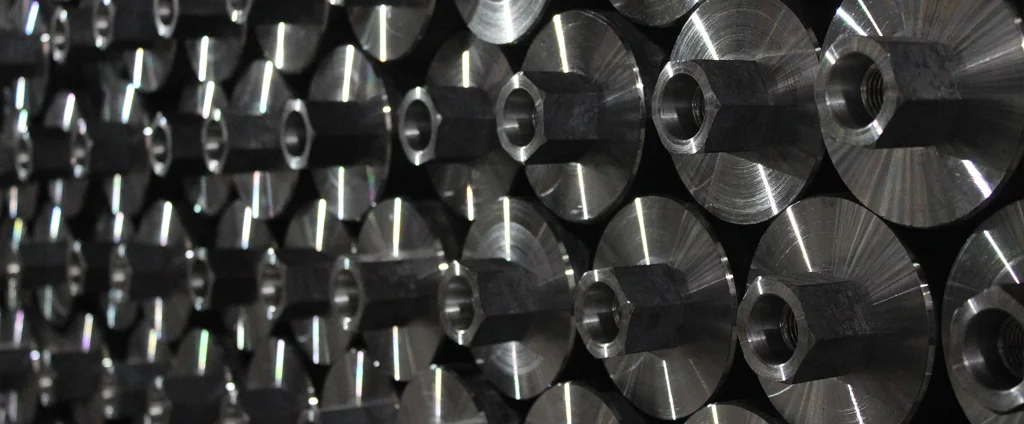SAE/AISI 4320 Alloy Steel (UNS G43200)

SAE/AISI 4320 is a nickel-chromium-molybdenum low-alloy steel known for its excellent hardenability, toughness, and strength. Commonly used in load-bearing and high-stress components, this steel is a preferred choice in automotive, industrial, and aerospace applications due to its reliable performance and versatile properties.
| Chemical Composition | ||
|---|---|---|
| Element | Min | Max |
| Iron | 95.85% | 96.98% |
| Carbon | 0.17% | 0.22% |
| Chromium | 0.40% | 0.60% |
| Manganese | 0.45% | 0.65% |
| Molybdenum | 0.20% | 0.30% |
| Nickel | 1.65% | 2.00% |
| Phosphorous | —— | 0.035% |
| Silicon | 0.15% | 0.30% |
| Sulfur | —— | 0.04% |
The following table provides a list of SAE/AISI 4320 properties in both SI and US customary/Imperial units.
Click on the button to switch between Metric and Imperial units.
| Physical Properties | Metric |
|---|---|
| Density | 235 kg/m3 |
| Mechanical Properties | Metric |
| Tensile Strength (Ultimate) | 580 MPa |
| Tensile Strength (Yield) | 425 MPa |
| Young’s Modulus (E) | 190 - 210 GPa |
| Bulk Modulus (K) | 140 GPa |
| Shear Modulus (G) | 80 GPa |
| Elongation at Break | 29% |
| Reduction of Area | 58% |
| Poisson’s Ratio (ν) | 0.27 - 0.30 |
| Brinell Hardness | 580 |
| Thermal Properties | Metric |
| Thermal Conductivity | 44.5 W/m·K |
| Specific Heat Capacity (Cp) | 470 J/kg·K |
| Coefficient of Thermal Expansion (αL) | 1.13×10-5 1/°C |
| Electrical Properties | Metric |
| Electrical Conductivity | 4.29×106 S/m |
| Electrical Resistivity | 2.33×10-7 Ω·m |
The values in this table are approximate and can vary depending on various factors such as the specific manufacturing process and heat treatment applied to the alloy.
Advantages & Disadvantages of 4320 Alloy Steel
| Advantages | Disadvantages |
|---|---|
| High strength and toughness | Moderate weldability, requiring preheating and post-weld heat treatment |
| Good wear resistance | Susceptible to cracking if improperly heat treated |
| Good hardenability | Moderate machinability, requiring suitable cutting tools and techniques |
| Excellent impact resistance | Relatively low corrosion resistance |
| Versatile and widely used in various applications | Higher cost compared to carbon steels |
Applications of 4320 Alloy Steel
4320 alloy steel is widely used across demanding industries thanks to its strength, toughness, and wear resistance, including:
- Gears and Gear Shafts: Commonly used in the manufacturing of gears and gear shafts for machinery, automotive transmissions, and heavy-duty equipment. Its high strength, good hardenability, and wear resistance make it suitable for transmitting power and withstanding high torque and contact stresses.
- Axles and Shafts: The high strength and toughness make it well-suited for axles, crankshafts, camshafts, and other rotating shafts in automotive and machinery applications. These components require the ability to withstand bending and torsional loads.
- Fasteners: Utilized in the production of high-strength fasteners such as bolts, studs, and nuts. These fasteners are commonly used in heavy machinery, construction, and industrial applications that demand reliable and durable connections.
- Agricultural Equipment: Components in agricultural machinery, such as agricultural tillage equipment, plows, and harrows, benefit from the wear resistance and strength. The steel can withstand the abrasive forces encountered in soil and other agricultural applications.
- Industrial Tools and Dies: Employed in the production of industrial tools, dies, and molds that require high strength and toughness. These tools can include punches, chisels, die casting dies, and extrusion dies, where resistance to wear and impact is essential.
- Aircraft and Aerospace Components: Certain aircraft and aerospace applications utilize it for critical components like landing gear parts, engine components, and transmission systems. Its combination of strength, toughness, and fatigue resistance is important in maintaining the structural integrity and performance of these components.
